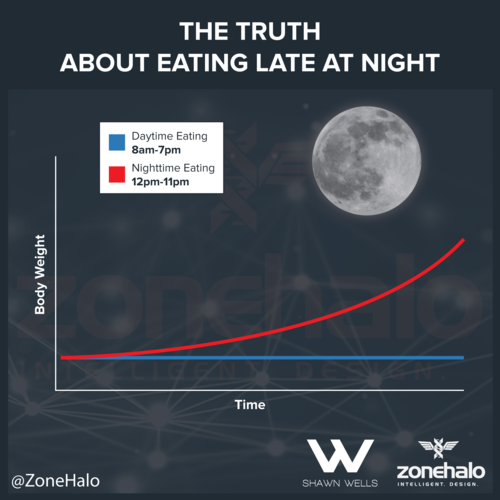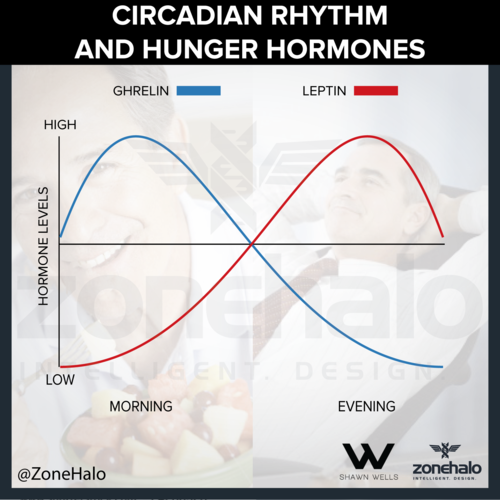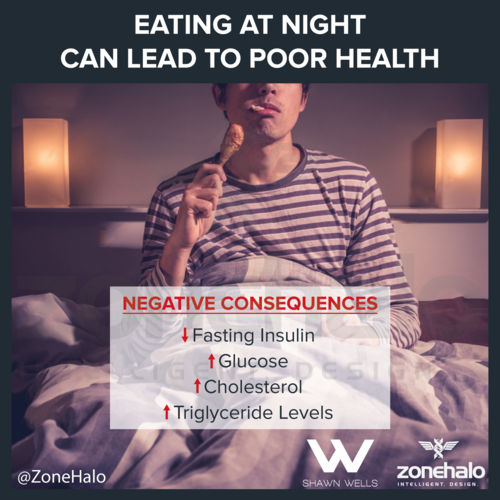Late night snacking has always been a concern when it comes to overall health and wellness. It has become generally recognized as an unhealthy practice that can lead to not only weight gain but also adverse health effects. Many attempts have been made disprove this thought. Now it is common to hear the everyday health professional say something like, “Calories are what really matter, not when you eat them.” If you understand the physiology of the human body then it is extremely difficult to believe such a statement. It is important to know that at any given moment there are drastic changes in our body that make the way we handle things, such as food, differently. So, what does the science say about late night eating?
New Study
While there have been several studies looking at the effects of meal timing, a recently published study found that delayed eating can not only increase weight but also negatively affect human health. This study took 9 healthy adults and separated them into two different eating groups. One group only ate food between 8 am and 7 pm while the other group delayed their eating and ate between Noon and 11 pm. Subjects then waited for two weeks to let their body recover and then started the opposite eating regimen. Throughout the duration of the participants had metabolic measures and blood drawn to track internal changes.
Results
The scientists at the University of Pennsylvania who completed this study found that the participants who ate later had a greater increase in body weight compared to the participants who ate earlier. Results also found that the participants who ate later demonstrated an increase in respiratory quotient (RQ) which is a measure used to determine macronutrient metabolism. A higher RQ means that you are burning more sugar and less fat. Even worse than the first two findings, the researchers also found that eating later in the day led to negative changes in insulin, fasting glucose, cholesterol, and triglyceride levels.


Another interesting aspect of this study was that they tracked changes in two of our hunger hormones, Leptin and Ghrelin. These two hormones are responsible for telling us when to eat and not to eat and in a healthy individual they should operate to prevent gaining excess body fat. This study found that Ghrelin, the hormone responsible for stimulating appetite, peaked earlier in the day time. While Leptin, the hormone that suppresses appetite, peaked later. This is interesting because it suggests that eating earlier may prevent you from overeating at night since the hormone responsible for stimulating appetite is not as high at night.
Interestingly, if you look at this from an evolutionary stand point you will understand that it relates back to circadian rhythms. Circadian rhythms are our bodies internal clock that is supposed to work in conjunction with our external light dark settings. It is likely that since we are not nocturnal animals, we were never meant to eat late at night. This is why our body’s natural rhythm is to secrete hunger hormones during the day when our ancestors would have easier access to food and not during the night where hunting would be more difficult.
Take Home
The take home message from this study is that it is possible that delaying your eating and eating the bulk of your calories in the evening and into the night could lead to adverse health effects. This study and past studies suggest that when we eat later in the day we are going against the natural clocks of our body which can lead to an array of health issues. One important aspect to note is that dietary composition can make a big deal when it comes to meal timing. While this study did an incredible job to control for many aspects, future studies should look at a similar design at different caloric intakes and macronutrient ratios.



